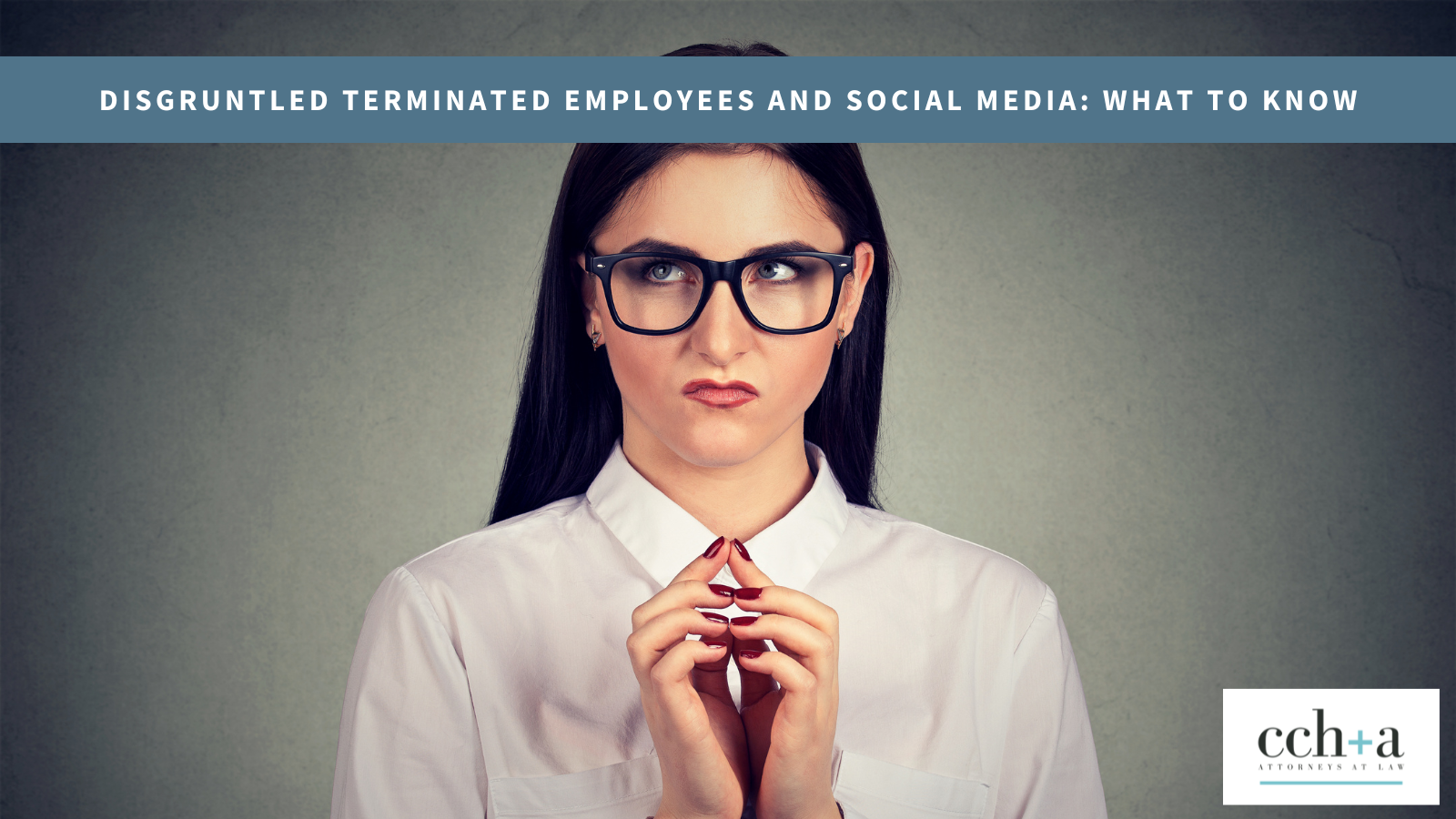Disgruntled Terminated Employees and Social Media: What To Know

Author: Brent R. Borg
POST DATE: 8.11.22

We receive a fair number of calls from clients every month or so that start along these (hypothetical) lines:
"Good morning! We recently fired an employee who was performing poorly. Well, that employee is now blowing us up on social media and saying all kinds of nasty and false things about our business! We want you to send that employee a cease-and-desist letter and sue if they don’t stop. This is hurting us!"
What Should You Do?
Employers should be concerned about negative publicity, whether on social media or otherwise. You should also have systems in place to monitor their social media profile across various platforms so you can navigate these situations nimbly and effectively.
That said, firing off a cease-and-desist letter or, more aggressively, filing a lawsuit, is not always the best strategy. This brief article will help employers better understand the types of legal claims that might be available and, perhaps more important, provide a menu of common strategies to defuse the situation in an effective and efficient manner.
First some high-level background on legal claims that can arise in these situations:
- Defamation. Without getting into too much technical legalese, “defamation,” generally speaking, involves a false statement that damages a person’s (or, in this case, a business’s) reputation in the community. A helpful example in this context is a former employee stating falsely on social media that the employer steals from its customers, which results in those customers no longer doing business with the employer.
- Intentional Infliction of Emotional Distress. A truly outrageous false statement on social media might, in some instances, give rise to a claim for “intentional infliction of emotional distress.” Such a claim would arise when the false statement is so over the top that it would cause a normal person to experience real emotional distress and actually does cause the owner or manager of the business emotional distress. Although not occurring in the employment context, a lawsuit recently filed in New Jersey sought damages for emotional distress based on a funeral home allegedly placing the wrong body in a casket for a burial ceremony. Although that case is pending, it demonstrates that there is a high bar to showing that the conduct in question is truly “outrageous.”
- Breach of Contract. Employers sometimes have employment agreements that impose obligations on their employees after the employment relationship ends. The most common of these is a non-compete or non-solicit restriction. It is also possible that an employment agreement might prohibit a former employee from disclosing the employer’s confidential information or from making disparaging remarks about the employer. Thus, if you discover that a former employee is making inappropriate comments on social media about your business, then it is a good practice to first consult any employment agreement to determine if the former employee has breached any contractual obligations.

Opinion vs Fact
Determining whether any of these legal claims or others apply involves a careful review of the former employee’s social media post. For example, if a former employee couches a disparaging remark about the employer as opinion, then it may be difficult to establish that the remark was false for purposes of a defamation claim.
Regardless of the strength of available legal claims, employers should always run through the following menu of options when deciding the most appropriate course of action:
- Do Nothing. This is the hardest thing for employers to do in these situations, but ironically in my experience it is the best strategy in many instances. The reason has to do with what I will refer to as the “Feeding the Troll” phenomenon, and to better understand this phenomenon the employer has to take a moment to put itself in the former employee’s shoes. Chances are the former employee is angry and frustrated and wants to take a few parting shots at the employer. But like most people, eventually the former employee has to find work elsewhere and move on. In many cases that means the more time goes by, the less likely the employee will continue the social media tirade. In contrast, “Feeding the Troll”—for example, by engaging the former employee on social media or sending a cease-and-desist letter (more on those below)—the former employee may become emboldened and reengage when he otherwise would have not. Stated differently, not feeding the troll means that sometimes the former employee will move on and the situation resolves itself.
- Respond on the Social Media Platform. This is always an option, though I hesitate to say how to respond, as that depends on the specific facts and circumstances of each case. Public relations firms can be helpful in this regard and should be considered as an option too. In addition, sometimes employers notice that others in the community have spoken up in support of them and against the former employee. All other things being equal, in those situations it may be best to allow others to respond and support you, particularly if there are far greater numbers supporting you than there are supporting the employee.
- Send a Cease-and-Desist Letter. This option should not be pursued without guidance from legal counsel. If the former employee’s statement is particularly egregious and damaging, a cease-and-desist letter can be portrayed as a reasonable effort to achieve compliance short of litigation.
- File a Lawsuit. Sometimes the fallout and damage from a former employee’s social media post become so substantial that a lawsuit is the only reasonable option. In a 2017 case from Canada, for example, a former employee at a private care facility made a false statement on Facebook that the facility mistreated its patients. The statement found its way to a community webpage followed by more than 10,000 people, which resulted in an onslaught of negative publicity and a formal investigation by authorities. The facility received a $17,500 judgment against the employee. Like a cease-and-desist letter, this option should be considered through consultation with legal counsel.
Employers should understand that their social media presence is worth monitoring, particularly when a disgruntled former employee makes a cheap shot or two. Knowing what legal claims are available and the pros and cons of some common responses can go a long way toward arriving at an effective plan to tackle the situation.
Contact the Litigation team at CCHA
At CCHA, litigation is what we do. For over 100 years, our firm has developed one of the premier litigation practices in Indiana – helping individuals, families, and business owners find answers to and recover from life’s most tragic and significant events. Contact our attorneys today for a committed, knowledgeable attorney who will remain committed to advocating on your behalf.

